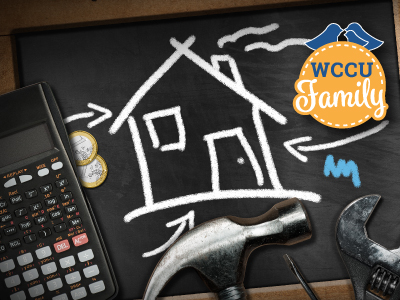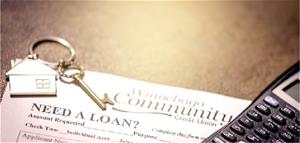
Home Equity Loans: Step by Step Guide
At times the world may feel like it is spinning out of control. To avoid being caught in a similar situation when shopping for the best home equity loan you can find, here are a few steps that will keep things simple and easy:
Types of loans
There are two kinds of home equity loans: home equity line of credit (HELOC) and a standard home equity loan. Know the basics of each so that you can consider which is the best fit for you.
A HELOC works like a credit card, you're allowed to borrow as you’d like up to a certain limit. HELOCs are where you pay a variable interest rate and have a minimum payment due each month based on the amount of the credit line used. With a standard home equity loan, you receive a certain amount of cash and then repay it on a set schedule, usually at a fixed interest rate.
Determine your equity
The amount you can borrow is determined by how much home equity you have which is how much of your current home value is paid for. Typically, lenders want you to have at least 20 percent equity remaining after you take out a home equity loan.
Look at what is offered
Start with your existing financial, like Winnebago Community Credit Union. Don’t stop there, compare rates of other banks and credit unions. If it seems too good to be true, you are probably right and should take a closer look.
Ask questionsGet a full understanding of points, APR, and closing costs associated with the loans you're considering. A Fixed Rate Loan Estimate details these out in a document that the lender must provide within three days of receiving your loan application. When comparing don’t forget to consider the APR for a home equity loan includes closing costs, while the APR for a HELOC does not.
Rate structure
Home equity loan rates can either be adjustable or fixed. The interest rate on adjustable loans can fluctuate, which can put you at greater risk of increasing costs.
Fixed rate home equity loans have less risk, but can sometimes cost more for owners who end up selling in a few years. If you’re not sure how long you’ll be in your home, consider asking your lender about a hybrid adjustable loan with a fixed introductory rate.
Closing costsThe Fixed Rate Loan Estimate includes a quote on closing costs. Many times the actual costs at closing are often different from those on the estimate. Most of the fees are assessed by third parties, and therefore not under your lender's control. Ask your lender how closing cost changes are handled.
Home equity loans should be a positive opportunity, not one filled with confusion and frustration. Following these points to outlay a path to home equity success for the future.


















